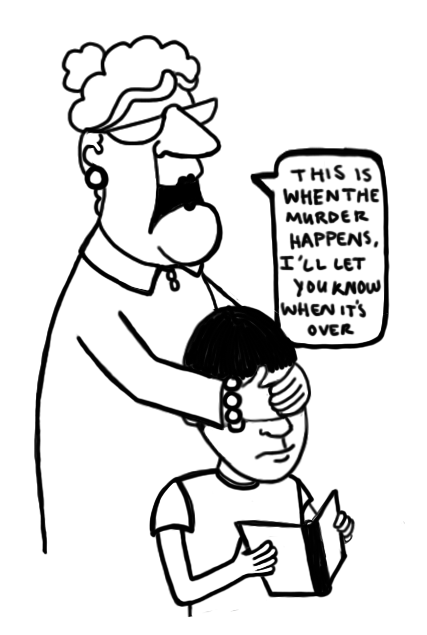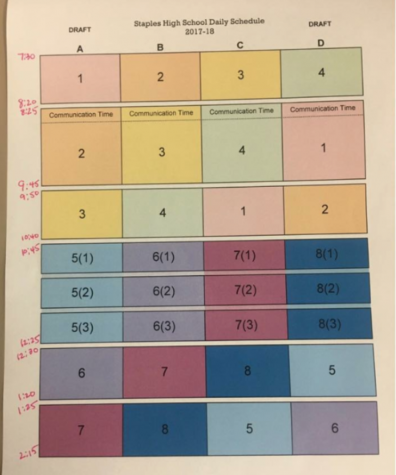Warning against trigger warnings
Remember when you were a little kid, and you weren’t allowed to stay up late and watch the news? It was probably because your parents wanted to shelter you from hearing about all the bad happenings in the world – like murder, rape and robbery.
Something similar is happening in schools, mostly colleges, all across the country. Students are receiving trigger warnings before reading graphic or potentially upsetting material in novels.
A trigger warning is a warning given by a teacher to students regarding sensitive material in a book, from anti-semitism to death to racism to rape, that may “trigger” a student’s past negative emotional experience. Although there is no rule for or against trigger warnings at Staples, some teachers have begun integrating them into their lessons.
However as high schoolers, we’re about to enter a world that unfortunately does contain murder, rape and robbery.
And in some books, these topics are a vital focal point of the story.
If you’re about to read “To Kill a Mockingbird” in your English class, your teacher may warn you about the book’s impending description of murder.
Sorry if we just ruined “To Kill a Mockingbird” for you, but that’s our point. Trigger warnings detract from the effect a book may have on its readers.
We learn that in each book we read, each word, paragraph and sentence is chosen for a reason. If authors intended for us to be warned about the content of their book, they would have warned us themselves.
The shock of reading all the details of a character’s death isn’t necessarily comfortable, but that could be because the author wants us to feel uncomfortable.
Yet, it’s also not difficult to see where proponents for trigger warnings are coming from.
In schools, teachers are supposed to act in loco parentis, or “in the place of a parent.” They do whatever they can to protect us. And we know that.
They want to make sure we can handle the content of the text they’re teaching us.
There are students at Staples who have trudged through immense, unimaginable hardships. And there are undoubtedly scenes in books that may mirror these students’ experiences and cause them to become upset.
Of course, we must be sensitive to that.
So how about a general, overarching warning or discussion one time during the year – a warning that simply cautions that, at some point throughout the year, the class may be exposed to some sensitive material.
Teachers should tell students that if they think they may not be able to handle the content of any book at any point in the year, they should speak up.
They should talk to someone like their guidance counselor, the school counselor or their teacher.
High school prepares students for the real world by generating independent, self-sufficient young adults. Part of that process is making students speak for themselves when need be.
So let’s foster an understanding, empathetic environment.
But let’s not damage a student’s developing independence and maturity.
And let’s keep intact the jaw-dropping, heart-racing, tear-jerking impact that some literary masterpieces can have on us.

















































![[Nov. 2016 Editorial] Battling bystander effect requires administrative change](https://www.inklingsnews.com/wp-content/uploads/2016/11/Screen-Shot-2016-11-22-at-1.05.28-PM.png)






Val • Sep 8, 2022 at 5:17 am
Trigger warnings are not trying to prevent people from growing up but to tell people with triggers in advance so they can decide wether to read and are prepared if they do in case triggering topics are part of it. For example a person with traumatic abuse memories might not want to read a book including abuse in order to stay safe in terms of mental health. This is really important. As the author you don’t always think about every potential trauma you might trigger in readers but it is important that those people who are sensitive to certain topics can check somewhere for content notes in order to decide what and how to read.